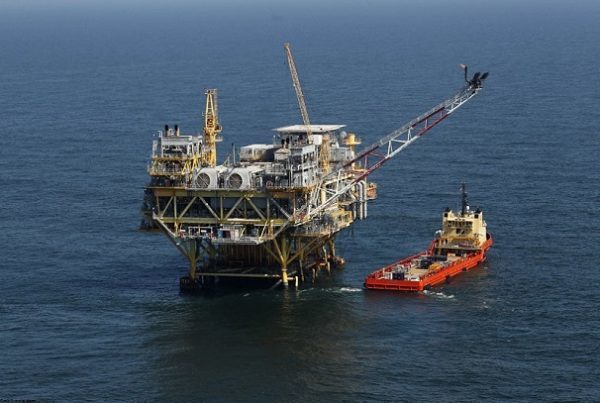The international community has often considered Gabon a bad student. While the oil revenues had made Gabon a rich country of the time of great prosperity in the 70s-80s, it is realistic to note today that the decline in oil production and therefore reserves are very real. Hence the need for urgent diversification of the economy, still slow, but promising for the next decade.
There is no longer any doubt that Gabon’s oil reserves are in decline and that hopes for new discoveries are now based on offshore exploration, which are more expensive, but for which oil companies now wish to share the risks. grouping. Recent discoveries in the gas sector could generate new opportunities for the development of the sector, through a sedimentary basin covering an area of 247,000 square kilometers, of which 30% on-shore and 70% off-shore. About 47% of the allocated area is open for exploration.
If Gabonese oil production was 11.92 million tons in 2015, or about 230,000 barrels / day, an increase of 8.6% compared to 2014 due to the start of production of certain marginal fields and optimization of other fields, in 2018 this production is below 200,000 barrels / day. But production is continually declining due to the natural decline of mature fields.
Since the beginning of oil exploitation in Gabon in the 1960s, production reached its peak in 1997 (which corresponded to the peak production reached by Rabi, Gabon’s largest deposit) with a record high of 18, 56 million tonnes. Hopes are now turning towards deep offshore exploitation, which has been the subject of successive calls for tenders for the allocation of oil blocks. According to the International Monetary Fund (IMF), the share of oil in Gabon’s GDP in 2015 stood at 31.6% and the bulk of Gabonese oil production (mainly crude) is exported. Asia remains the leading destination for oil produced in Gabon (51%), followed by Europe (31%). Latin America and the Caribbean (15%) followed by North America (3%), which is now self-sufficient.
Diversifying an economy requires time and skills
Forty years ago, having dared to diversify its economy and train economic operators able to support its commercial fabric, Gabon built its wealth exclusively on oil, wood and some raw materials of which production was poorly controlled. The unequal income distribution of a population of 1.9 million poses the real problems of development. The alarming situation, responsible for the aggravation of unemployment, is the result of the bad economic policies of successive governments since the 1970s, a period of great oil prosperity.
Today, Gabon is no longer considered a good student of the International Monetary Fund (IMF) or the World Bank. Investors are no longer jostling at his bedside, and the support of France is not enough to “change the minds of leaders” too expensive. The absence of a reliable justice, the corruption which gains the agents of the State and the hijackings of the public funds which multiply, do not plead for the good governance either. In recent years, the data has changed. Oil, the country’s main resource, is running out, poorly allocated subsidies have forced the international community to be more concerned about Gabon’s spending.
The place of industry in national production is very limited: with the exception of wood processing, it is essentially oriented towards the internal market. In the wake of the economic crisis, the informal sector has in recent years taken an important place in the Gabonese economy, even if data on its contribution to GDP are not available. Gabon is on duty today, not only to readjust, but also to gradually diversify its economy to get out of the oil trap.
The majority of the population (about 800,000 inhabitants) lives in the capital, Libreville. How will the state solve the basic problems in this time of crisis when it could not do so in the good years? Like all oil-producing countries, Gabon has suffered from the enormous role oil plays in its economy. The government is trying to gradually reverse the trend. The bet is difficult.
Between oil and good governance
The relative opulence of years of oil growth and the entry into the government of notorious opponents have so far preserved the country from too violent ethnic rivalries. But the construction of the Gabonese nation, with slogans, was only a decoy to deceive international institutions and foreign governments. Ministerial positions, which continue to be allocated on the basis of ethnic considerations, fuel a bloated government.
The activism of the government, marked by a series of dispersed initiatives, appears more as the fruit of a personal strategy than a great collective design, which could indeed constitute regional integration. Such an objective, the only one that is worth for Gabon in the perspective of the post-oil, seems for the moment inaccessible.
To get out of the crisis, at a time when non-oil economic activities are bogged down, the leaders at the head of a very centralized Gabon and without any real popular base, should agree to practice large abandonment of sovereignty and succeed in training the inevitable adhesion of the populations.
By Antoine Lawson



